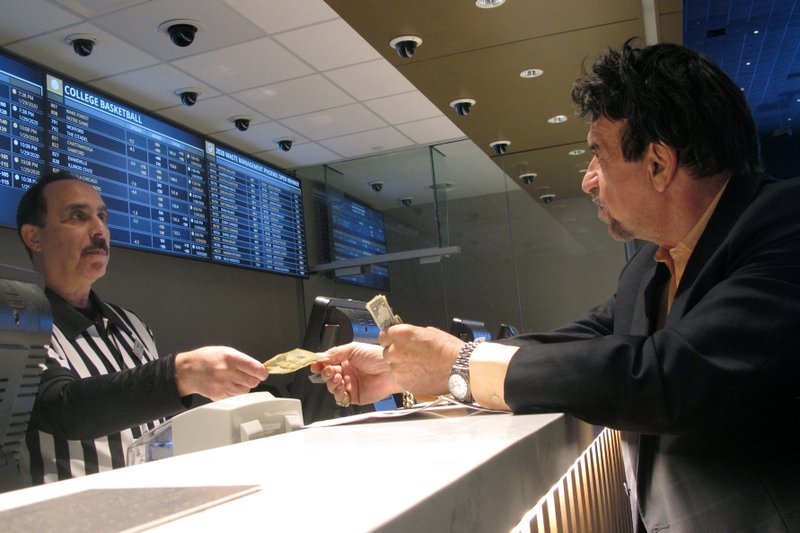ATLANTIC CITY, N.J. -- The coronavirus pandemic is creating a favorable environment for a quicker expansion of sports betting and internet gambling in the U.S. as states deal with huge budget deficits and look for new tax revenue wherever they can find it.
Most major sports remain shut down because of the virus, but European soccer and Asian baseball have begun play, NASCAR is racing again and PGA Tour golf restarts in two weeks. Major U.S. sports leagues including the NBA and NHL are making plans for resuming their seasons.
The virus "will accelerate the expansion of sports betting and online casinos in the next 12 to 24 months," said Chris Krafcik, a managing director with Eilers & Krejcik Gaming, which tracks sports and internet betting legislation in the U.S. "Both activities provide states, whose economies have been massively disrupted by the outbreak, the opportunity to capture new revenue immediately in the form of upfront license fees, and over time through taxes."
Sports betting is not a golden goose for states seeking new tax revenue. An Associated Press analysis last year found that taxes on sports betting would generate just a fraction of 1% of most states' budgets if they met their estimates -- and many states fell far short of those projections.
[CORONAVIRUS: Click here for our complete coverage » arkansasonline.com/coronavirus]
But with many state budgets shrinking as tax revenue disappears, even a small boost is better than none.
So far, 18 U.S. states plus the District of Columbia offer sports betting, and four offer internet gambling, which can include online casino games, slots and poker.
In addition, Virginia and Tennessee have approved sports betting but have not yet started. North Carolina allows two tribal casinos to offer it, and is considering a bill to allow it statewide. Washington state allows sports betting at tribal casinos once regulations are in place, and Oklahoma allowed two tribes to do so, pending approval from federal authorities.
Louisiana, Massachusetts and Ohio are realistic candidates to legalize sports betting this year, Krafcik said.
Louisiana is close to approving a November referendum on sports betting, and Ohio's Legislature is moving forward this week with a bill that could authorize sports betting, including mobile betting, although a competing measure could limit it to in-person bets at casinos and racetracks.
On Thursday, legislators in California promoted sports betting as a way to help a state budget facing a $54 billion deficit. The nation's largest state is considering a November referendum.
Krafcik said Illinois could approve internet gambling by the end of the year, at least in part to recoup tax revenue lost to the virus outbreak.
"States are facing unprecedented financial challenges," said Matt King, chief executive of FanDuel Group. "We are firm believers that mobile sports betting and online gaming legislation will be the type of common-sense legislation that states will look to when legislatures return."
New York state Sen. Joseph Addabbo has been pushing his state to adopt mobile and online sports betting as a way to generate new revenue, including recapturing money from gamblers crossing the border into New Jersey to bet on sports. He said his state faces a budget deficit of up to $17 billion, "largely because of the virus." Other estimates have placed the shortfall around $13 billion.
Business on 05/30/2020

